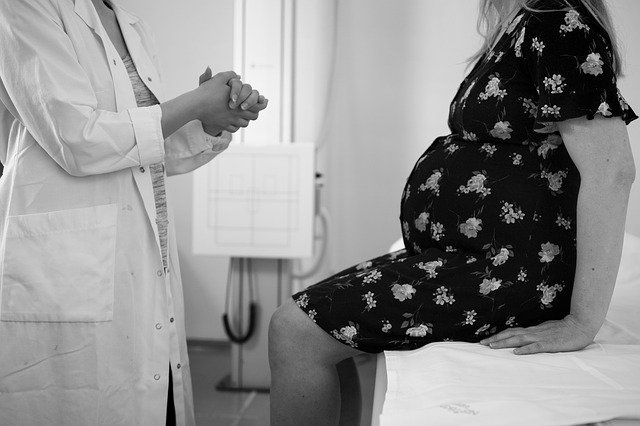What is genetic counselling?
Genetic counselling is a communicative process that serves to inform, educate and support patients and families with a suspected or confirmed diagnosis of genetic disease.
During the consultation, the genetic counsellor will ask you about your personal and family health history. Based on this information, he or she can determine the likelihood that you or a member of your family has or is a carrier of a genetic disease. Based on this information, the genetic counsellor will advise you whether it is advisable for you or a family member to undergo genetic testing.

When is it advisable to seek genetic counselling?
The reasons for seeking genetic counselling are diverse, ranging from the search for a healthier life (preventive medicine) to the diagnosis of serious hereditary diseases. For example, genetic counselling can be sought:
Pregnancy planning
Whether because of family or personal history, or simply because of a need for greater security, genetic counselling before pregnancy focuses on two main aspects:
● Fertility problems in the couple.
● Clarification of any doubts that prospective parents have about factors that may affect their baby.
Some of the issues that may be addressed during this consultation are:
● Genetic diseases that run in the couple’s families.
● History of infertility, multiple miscarriages or stillbirths
● Previous pregnancy or child affected by a birth defect or genetic condition
● Assisted reproductive technology options
During pregnancy
This genetic counselling during pregnancy may address certain genetic tests that can be performed during pregnancy. There are several reasons for this:
● Need for increased certainty
● To rule out familial diseases
● To dispel doubts in case of problems detected during routine check-ups
Some of the issues that may be addressed during this consultation are:
● History of infertility, multiple miscarriages or stillbirths.
● Previous pregnancy or child affected by a birth defect or genetic condition
● Abnormal test results (first trimester screening, blood tests, ultrasounds, chorionic villus sampling, or amniocentesis)
● Maternal infections, such as cytomegalovirus (CMV), and other exposures such as medications, drugs, chemicals and X-rays.
Based on the findings, the specialist may recommend prenatal diagnostic tests, such as non-invasive prenatal testing, familial mutation, array CGH, exome or genome.
Health problems in babies, children and teenagers
Genetic counselling can address concerns if your son or daughter shows signs and symptoms of a disorder that could be genetic, such as:
● Abnormal results on newborn screening tests.
● Presence of malformations detected after birth
● Presence of metabolic disorders in the newborn
● Intellectual or developmental disability
● Low height or growth faltering
● Ambiguous genitalia or abnormal sexual development
● Autism spectrum disorders
● Vision or hearing impairment
● Behavioural problems of genetic origin, such as schizophrenia
Adult health: preventive medicine
Whether based on family or personal history, genetic counselling can be used to determine risk for certain conditions including cardiovascular disease, psychiatric disorders and cancer. For example, tests are available to assess risk for:
● Hereditary breast and ovarian cancer.
● Lynch Syndrome (hereditary colorectal cancer and other cancers)
● Familial hypercholesterolemia
● Muscular dystrophy and other muscle diseases
● Hereditary movement disorders, such as Huntington’s disease
● Hereditary blood disorders, such as sickle cell anaemia
How does a genetic counselling consultation run?
Genetic counselling begins with an interview of about one hour with a genetic counsellor. The counsellor is a person with special training in genetics and counselling. During the interview, he/she will:
● Ask you about your medical history (inherited diseases in the family, miscarriages, stillborn babies or unexplained deaths).
● Consult your medical records
● Examine any related tests that may have been carried out
Based on all the information gathered, in this and future consultations, the counsellor will be able to:
● Determine what genetic risks may affect you.
● Recommend the genetic tests to be performed
● Evaluate and explain the results and the possible implications for you and your family members
● Provide you with support and resources
What are the options after genetic counselling?
The options will depend mainly on the reason for seeking genetic counselling. It should also be noted that the genetic counsellor provides the information and support, but it is the individual who decides what is right for him or her. The counsellor does not tell anyone what to do. Some people do not make any changes or undergo further testing based on genetic counselling.
● If any genetic risk indicators have been identified before pregnancy, options include: pre-implantation diagnosis, prenatal testing, egg or sperm donation, or adoption.
● If a genetic risk indicator has been detected during pregnancy, the couple can: have the baby, undergo surgery while the baby is still in the womb, or terminate the pregnancy.
● If a genetic alteration that is (possibly) behind the health problems in the child is detected during infancy, parents can gain some diagnostic certainty that in some cases can help determine or improve therapies and treatments.
● If a disease-related risk indicator has been identified in adulthood, preventive measures can be taken in certain situations. For example, someone at high risk of developing a type of cancer could be screened more frequently.
At Genosalut we have been advising people with medical conditions in which a genetic cause has been identified or is thought to be possible for more than 10 years. Based on our knowledge and experience we can rigorously interpret genetic results and offer professional advice.
If you like our blog, subscribe to our newsletter


